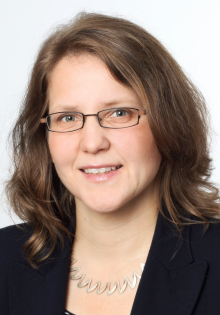Collaboration between universities, institutes for applied research and start-ups
A consortium led by quantum start-up Q.ANT has received around 50 million euros in research funding. Roughly 42 million of that comes from the German Federal Ministry of Education and Research (BMBF), with the consortium partners contributing around 8 million euros. The research funding is to be used to establish a facility for demonstrating and testing photonic quantum computer chips and other quantum computing components. The consortium will use this to research algorithms and technologies for photonic quantum computing and prepare them for use in industry. Q.ANT, a wholly-owned subsidiary of TRUMPF, recently presented a process that enables production of very powerful quantum computer chips. By creating highly specialised optical channels on silicon chips, this photonic chip process enables quanta to be guided and controlled practically loss-free even at room temperature. This will mean that the chips can also be deployed in conventional mainframe computers in future.
“Quantum computers made in Germany”
“The funding sends an important signal about Germany as an innovation hub. We are at the start of the quantum computing era and the global race for market share in this cutting-edge technology has begun. The resources now provided for this research alliance play a vital part in creating a German-made quantum computer,” says Q.ANT CEO Michael Förtsch. The research project named “PhoQuant” will run for five years. Q.ANT takes the industry lead in the consortium which counts 14 other German companies, institutes for applied research and universities among its members.
Quantum computer chips and jobs
Based on what we know today, computers with quantum chips will be used in the chemical industry, in biomedical sciences and materials science, for example. “Cooperation between leading researchers and businesses is the key to creating quantum computer chips, and the relevant jobs, in Germany. Only if industry, universities and institutes for applied research work closely together can the knowledge found in Germany as a research hub be used to create successful industrial products,” says Förtsch. The project members are aiming to present an initial prototype within two and a half years. In five years at the most, they want to create a quantum computer chip capable of performing extensive calculations.
Fundamental research from Germany
The Institute for Photonic Quantum Systems (PhoQS) combines Paderborn’s existing expertise in the areas of integrated optics and quantum optics, quantum information theory as well as algorithms and electrical engineering. Together, they can implement, control and characterise large quantum systems for light-based quantum information processing. “We have been global leaders in this area of research, engaging in pioneering, fundamental research over the last few years and decades. For the first time, this project gives us the opportunity to put this research to practical use in the form of demonstration models,” says Paderborn University’s Professor Christine Silberhorn.
From research to practice
The partners involved each bring their own expertise to the project. The universities are to develop and contribute fundamental research into the behaviour of quanta. The institutes for applied research are to provide support in transferring that knowledge into practicable methods. The start-ups involved are to develop and build the components of quantum computer chips.
The “PhoQuant” project is part of the BMBF framework programme, “Quantum technologies - from basic research to market.” The Frauenhofer Institute for Applied Optics and Precision Engineering (IOF) in Jena is also involved. “Among other things, researchers in Jena are developing integrated optical quantum light sources and low-loss integrated optical and fibre-optic interferometers as fundamental elements of photonic quantum computers,” says Professor Andreas Tünnermann, head of the Fraunhofer IOF. “To do this we need not only expertise in quantum optics and photonics, but particularly knowledge of the hybrid chip architecture and connection technology. We contribute this expertise to such a highly dynamic project so that, together with all of the companies and institutes involved, we can achieve our common goal of creating a powerful quantum computer.”
There are 14 partners involved in the research project in all: Q.ANT GmbH, Paderborn University, University of Münster, Fraunhofer Institute for Applied Optics and Precision Engineering, Friedrich Schiller University Jena, Ulm University, HQS Quantum Simulations GmbH, Humboldt-Universität zu Berlin, Fraunhofer Institute for Photonic Microsystems, Swabian Instruments GmbH, TEM Messtechnik GmbH, ficonTEC Service GmbH, Freie Universität Berlin and Menlo Systems GmbH.


